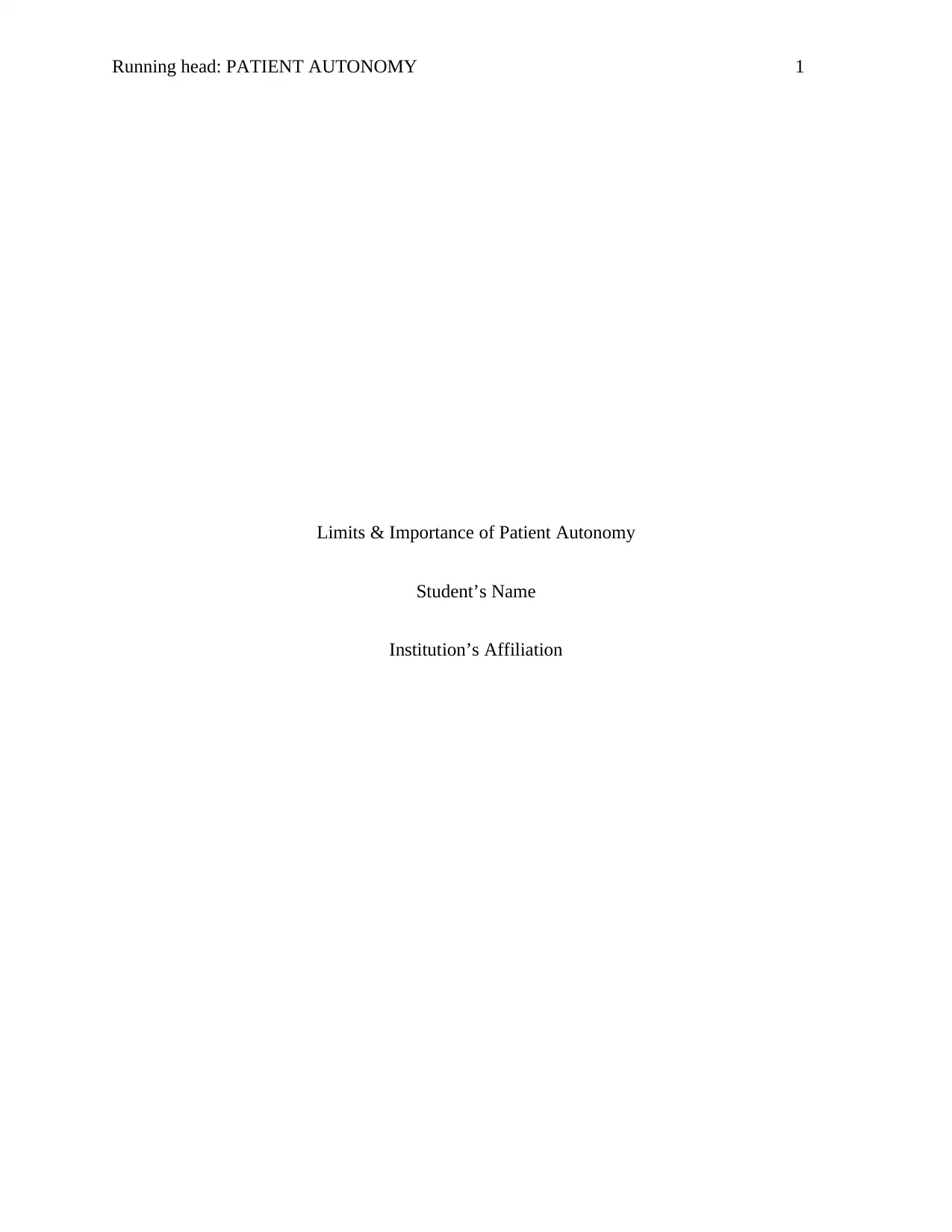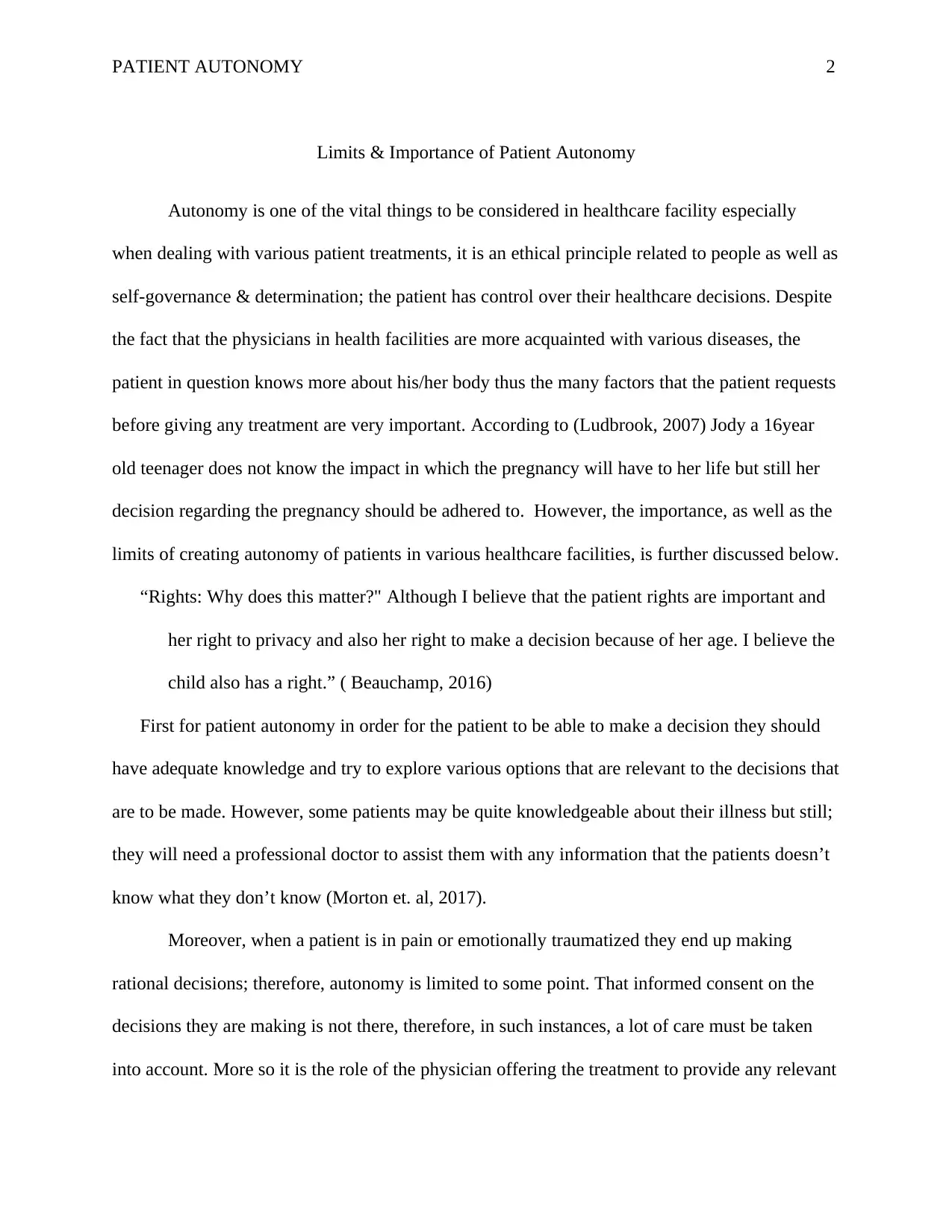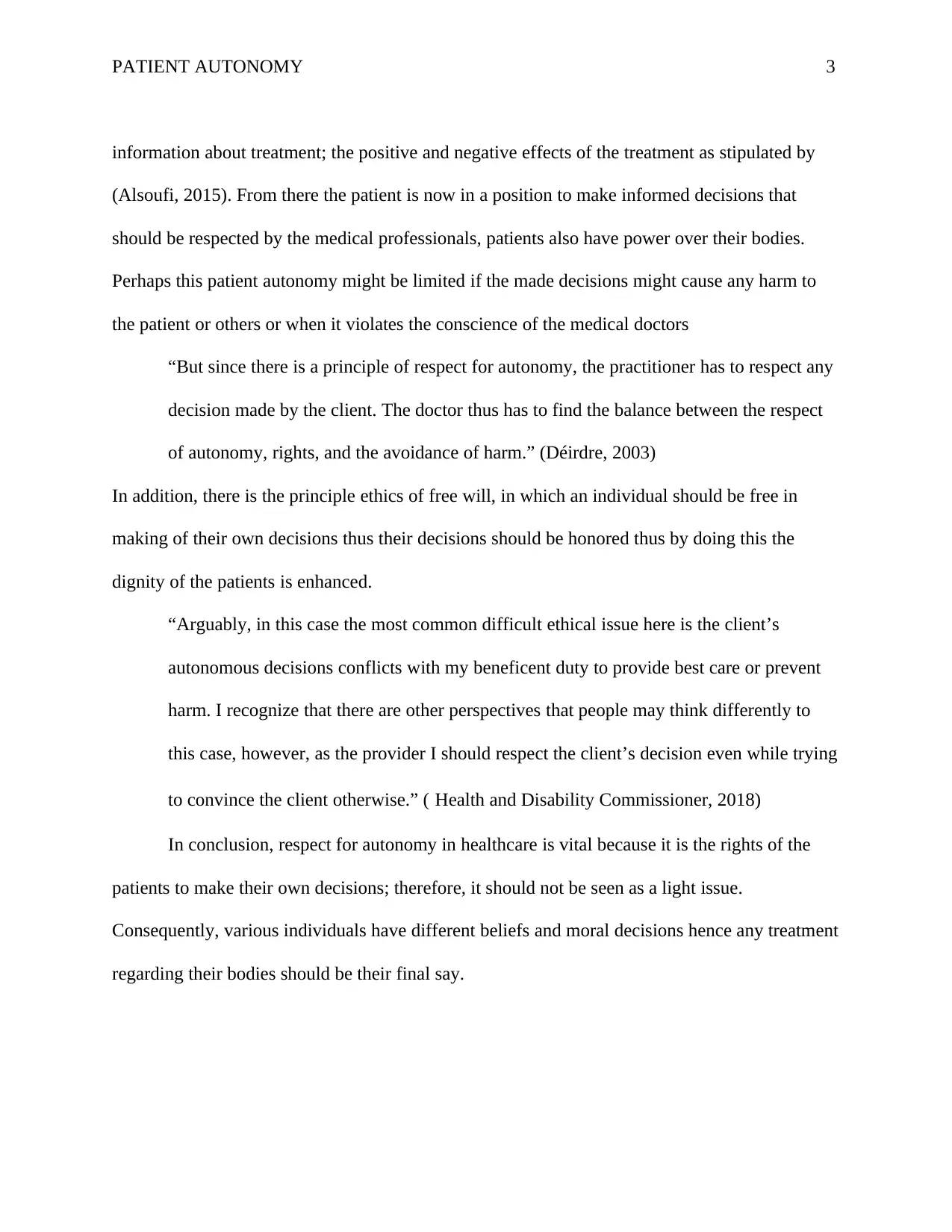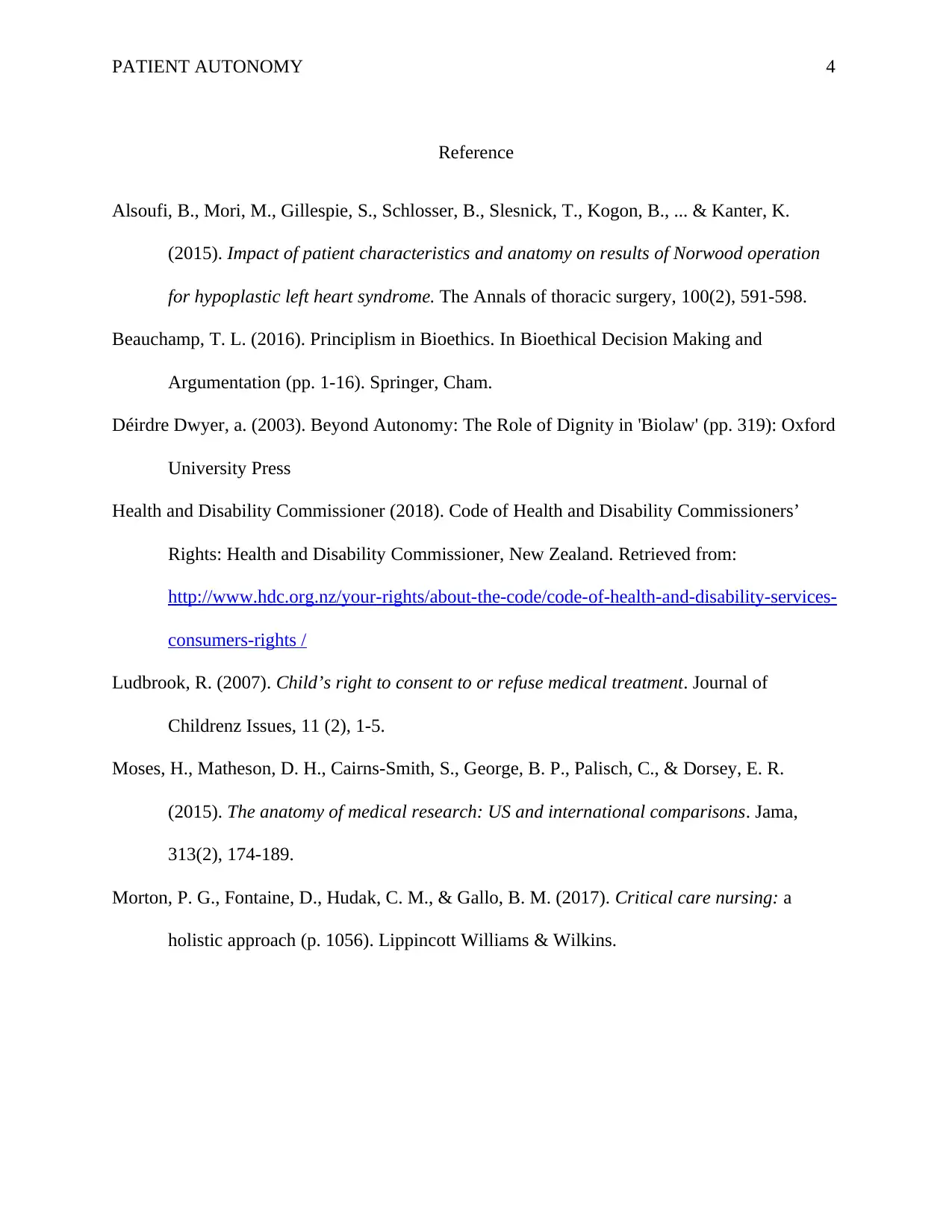Patient Autonomy: Balancing Rights, Limits, and Ethical Duties
VerifiedAdded on 2023/06/11
|4
|979
|290
Essay
AI Summary
This essay explores the concept of patient autonomy within healthcare, emphasizing its importance as an ethical principle that grants patients control over their medical decisions. It acknowledges that while physicians possess specialized knowledge, patients have unique insights into their own bodies, making their input crucial. The essay discusses scenarios where autonomy may be limited, such as when patients lack adequate knowledge, experience emotional trauma, or make decisions that could harm themselves or others. It highlights the physician's responsibility to provide comprehensive information about treatment options, enabling patients to make informed decisions. The essay further examines the ethical considerations surrounding patient autonomy, including the principle of free will and the need to respect individual beliefs and moral values. The essay also integrates additional quotes to support the importance of patient rights, ethical duties and informed consent. In conclusion, the essay underscores the significance of respecting patient autonomy in healthcare as a fundamental right and a crucial aspect of ethical medical practice; this essay is available on Desklib, where students can find a variety of academic resources and solved assignments.
1 out of 4










![[object Object]](/_next/static/media/star-bottom.7253800d.svg)